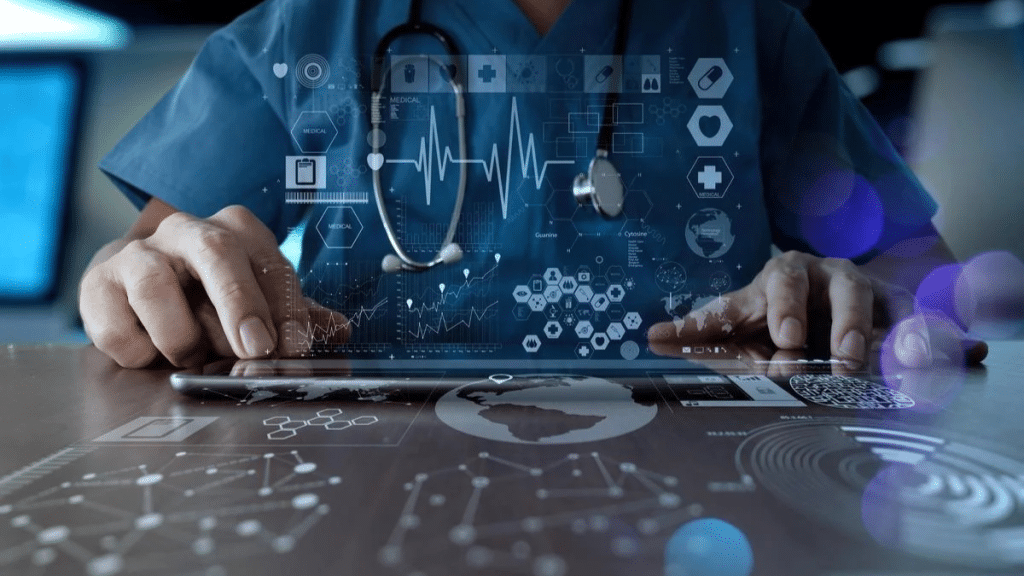The rapid development of technology is increasingly revolutionising healthcare today. More and more modern technologies are bringing many benefits to medicine. They enable faster diagnosis, more accurate treatments, personalised therapies and more efficient patient care for those in need.
By combining traditional and modern medicine, it is possible to detect diseases and harmful health conditions much earlier, make more optimal diagnoses, reduce treatment time to a minimum, thus promoting faster recovery, and play an important role in prevention.
The Role of Artificial Intelligence in Disease Diagnosis
Various AI algorithms, and here we are thinking specifically of machine learning and image processing, can detect even small tumours, blood clots and organ lesions in medical images.
Thanks to these highly advanced and precise algorithms, even potentially serious or fatal malformations can be detected significantly earlier. Thus, algorithms powered by AI technology can play a significant role in screening patients and initiating early treatment, considerably increasing patients’ chances of recovery and cure.
An excellent example of the algorithms mentioned above is Google’s DeepMind system, which identifies breast cancer much more accurately than conventional mammography scans using radiography. But similar AI technology is also used for early detection of skin cancer by analysing skin images.
The Benefits of Modern Technology in Genetic Testing
The ever-faster pace of technology is almost without boundaries, and fortunately for us, medicine is making the most of this. Modern technology now allows for fast and inexpensive DNA sequencing, giving doctors insight into certain individual genetic abilities.
This insight opens new doors in medicine, as precise diagnoses can be used to target and personalise medicines and therapies to patients, often with fewer side effects than other treatments.
An example of this is the choice of drugs for cancer that are specifically designed for a particular mutation, which minimises side effects and damage to healthy cells. In addition, it is now possible for doctors to predict how a particular treatment or drug will affect a patient.
Precise Surgeries with Medical Robots
The latest medical robots, such as the Da Vinci Surgical System, help doctors perform precise, minimally invasive surgeries with fewer incisions, less bleeding and faster recovery.
These robots require a high level of expertise to set up, and are now fully self-operating to perform surgery. Of course, the presence of a doctor and medical staff is required at all times during surgery, but the use of robots during operations makes it much easier to perform operations that require precise access.
The human body is much more complicated than, for example, the games at Casinos Deutschland, and must therefore be treated and cured with the utmost seriousness. Medical robots are often used in heart operations, such as heart valve surgery or replacement, and even in prostate cancer removal. There are fewer risks and a much faster recovery.
Modern Technologies in Telemedicine
Today, almost everything can be done through technology or in the online sphere, from paying bills, to keeping in touch at work or in person, to entertainment such as browsing Casinos Deutschland, to downloading movies and music from the online space.
To put it more seriously, the only thing Casinos Deutschland has in common with modern medicine is that patients can access their doctors from home through video calls, online consultations and digital health platforms. This makes it quicker and more convenient for them to get the right diagnosis without having to travel to the doctor’s office. This saves patients a lot of energy, time and money.
Not to mention the fact that many patients’ health conditions make it extremely difficult for them to move, even for a short distance. In many cases, remote diagnostics can be a lifesaver if it is possible to establish the correct diagnosis without the need for a face-to-face meeting between the patient and the doctor.
During the coronavirus epidemic, the role of teleconsultations has increased all over the world. There are several types of online consultations, where a general practitioner, a psychiatrist or a specialist can carry out an online examination and diagnosis. Another extraordinary example of tele-diagnosis is the ability of digital blood pressure and glucose meters to transmit data to the doctor.
So modern technologies have revolutionised medicine, helping patients and healthcare professionals alike. Medical robotics also has a major role to play in saving lives and performing more precise, faster medical procedures.
